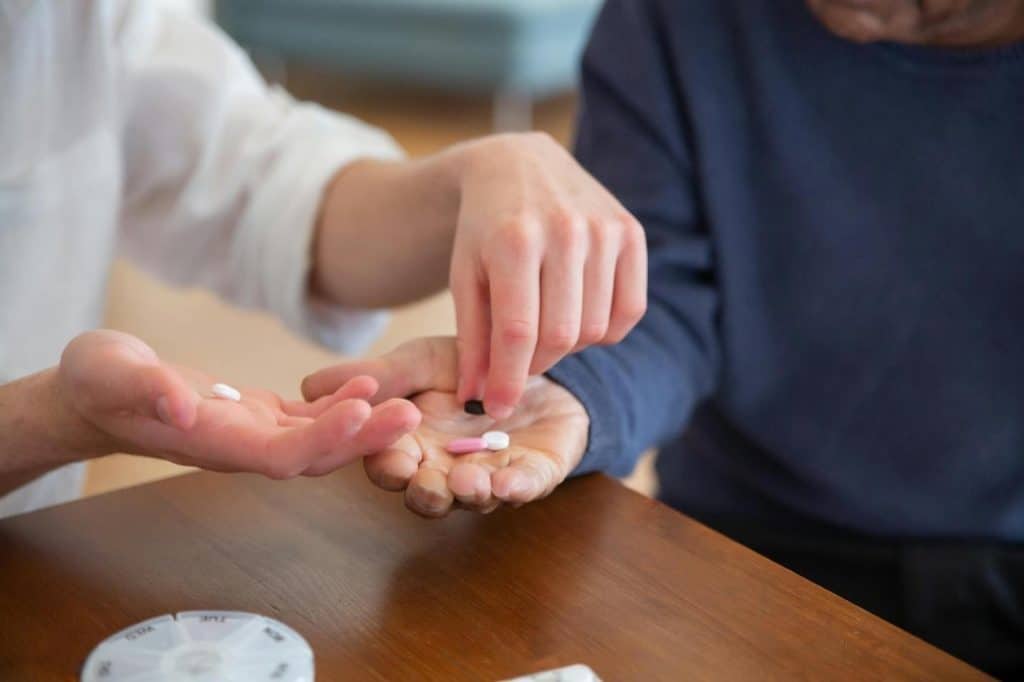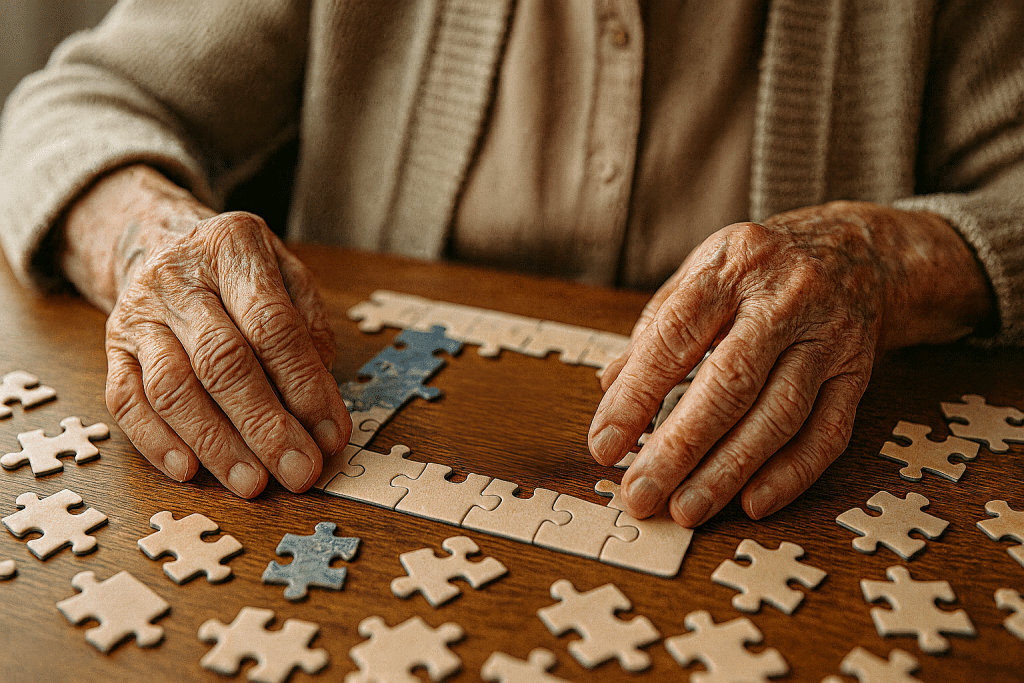What is home help and how does it work?
Home care for the elderly is a service provided in the user’s home and based on a personalized care plan.
The process usually goes as follows:
- Initial contact and assessment: the family or the user contacts the company (Hands Care, in this case), which schedules a technical visit to assess specific needs (mobility, hygiene, state of health, nutrition, etc.);
- Drawing up a care plan and budget: based on the assessment, the type and frequency of the services required are defined, as well as the cost;
- Definition of hours and services: the plan can include partial support (a few hours a day) or full support (24-hour service);
- Care begins: the necessary team (caregivers, assistants, nurses, physiotherapists) goes to the home to carry out the agreed plan;
- Monitoring and adjustments: the plan can be reviewed, adapted according to the user’s changing needs.
In Portugal, the Home Support Service (SAD) is a formally recognized social response that aims to support people in situations of dependency who continue to live at home.
Most common home support services
The range of home support services varies according to the degree of dependency. Here are the most common:
- Personal hygiene care, such as bathing, intimate hygiene and posture changes, which are fundamental for a person’s comfort and dignity;
- Meal support, which can include preparing meals at home and accompanying them during meals, guaranteeing adequate nutrition adapted to the needs of each user;
- Regular monitoring at home, offering companionship, cognitive stimulation and emotional support, important contributions to the person’s mental and social well-being;
- Carrying out light household tasks, such as tidying, basic cleaning or organizing the space, to maintain a safe and comfortable environment;
- Accompanying people to medical appointments or other commitments, helping with mobility and ensuring that the person complies with the health monitoring plan;
- Nursing care at home, such as administering medication, treating wounds or monitoring vital parameters, provided by health professionals;
- Physiotherapy sessions at home or other functional rehabilitation services, with plans tailored to each clinical condition, promoting autonomy and mobility;
- Specialized support in situations of greater fragility, with a focus on palliative care or monitoring chronic illnesses, always with respect, empathy and comfort.
Some companies offer 24-hour face-to-face support, especially in situations of greater dependency, guaranteeing continuous care adapted to each person’s reality.
At Hands Care, each situation is carefully assessed and, whenever necessary, we combine the support of caregivers with the intervention of specialized health professionals.
Differences between home care and nursing homes
Although both support people in situations of dependency, home care and nursing homes differ in the way they provide care and the impact they have on the lives of the user and their family.
The most important differences are highlighted below:
- Place of care: in home care, care is provided in the user’s home. In nursing homes, the person moves to a permanent residential facility;
- Comfort and familiar surroundings: the home service allows the person to remain surrounded by their own space, objects and routine, promoting greater emotional well-being;
- Degree of personalization: at home, the care plan is adapted to the specific needs of each person. In nursing homes, on the other hand, care is often more standardized and organized according to institutional routines;
- Emotional impact: the transition to a care home can be emotionally demanding, especially for people with strong ties to their family environment. Home support prevents this disruption;
- Responding to complex clinical situations: care homes may be better equipped to deal with emergencies or acute clinical situations. However, with a well-structured plan, home support can also include home nursing, physiotherapy and ongoing clinical support.
Opting for personalized home support, such as that offered by Hands Care, is often the most humane way of respecting the pace of life of those who need help, guaranteeing professional care without giving up the comfort of home.
Who can benefit from this type of support?
Home support is particularly useful for:
- Elderly people who experience a progressive loss of autonomy;
- People with a chronic illness, convalescing or undergoing rehabilitation;
- Those who need occasional, temporary or long-term care;
- Families who prefer a solution that respects home comfort;
- Situations in which the patient does not require permanent hospitalization, but does require ongoing support.
In short, when there are difficulties in carrying out everyday tasks, such as hygiene, eating or mobility, and the desire to remain at home remains, home support may be the most appropriate option.
The role of caregivers and health professionals
Home caregivers, such as aides, family helpers or specialized caregivers, provide support with daily living tasks (hygiene, mobility, emotional support, etc.).
When the needs are more demanding, health professionals (nurses, physiotherapists) are brought in for more technical care.
At Hands Care, we are guided by principles that guarantee trust and quality in every service:
- Rigorous selection of all the professionals involved;
- Continuous training;
- Regular clinical supervision to ensure accuracy and safety;
- Coordination between caregivers and health teams;
- Active communication with families, with regular sharing of information and adjustments whenever necessary.
In this way, we ensure that each user receives personalized home support that is compatible with their real needs.
Benefits for the elderly and their families
The advantages of home help are many:
- Comfort and familiarity: the elderly remain in their environment;
- Better quality of life: preservation of routines, privacy and identity;
- Reduced family stress: caregivers and Hands Care take responsibility for care;
- Prevention of hospitalizations: regular monitoring can prevent health deterioration;
- Flexibility of schedule and intensity: the plan can be adjusted to daily life;
- More autonomy: support encourages residual independence.
What’s more, family members gain more peace of mind and can maintain healthier bonds without the burden of 24-hour care.
How to hire home help in Portugal
If you’re considering this type of service and don’t know where to start, here are a few simple steps to help you make your decision:
- Look for trustworthy companies, such as Hands Care, with solid references, transparency in the process and a history of quality follow-up;
- Ask for a free assessment, so that the team can get to know the person’s needs and assess the family and housing contexts;
- Analyze the care plan and the budget, which varies depending on the type of support needed, the duration of the services and the location;
- Check the legal and safety aspects, ensuring that the company and the caregivers have adequate training and liability insurance;
- Formalize the service in writing, through a clear contract or term of engagement, which includes all the rights, duties and conditions;
- Closely monitor the provision of the service, maintaining an open channel of communication with the team to review the plan whenever necessary.
In cases where the support is provided by a public service or through a Social Security contribution (such as the SAD), there are specific rules, access criteria and possible financial support.
If you choose a home care company like Hands Care, look for more than just a service – choose a team that values respect, empathy and rigor in every care provided.
Final considerations
Living at home, in comfort and safety, remains the desire of many people, even when their autonomy is no longer the same.
Home help makes this possible: it allows us to care without distancing, to support without replacing and to be present without invading. More than a practical response, it is a commitment to the dignity of those in need.
At Hands Care, we believe that caring means listening, respecting and acting with competence, creating relationships of trust in which the technical and human sides always go hand in hand.
If you’re looking for a form of care that respects individuality and promotes well-being, you can count on us. We’re here to support you every step of the way – just fill in our contact form and start down this path with Hands Care.



